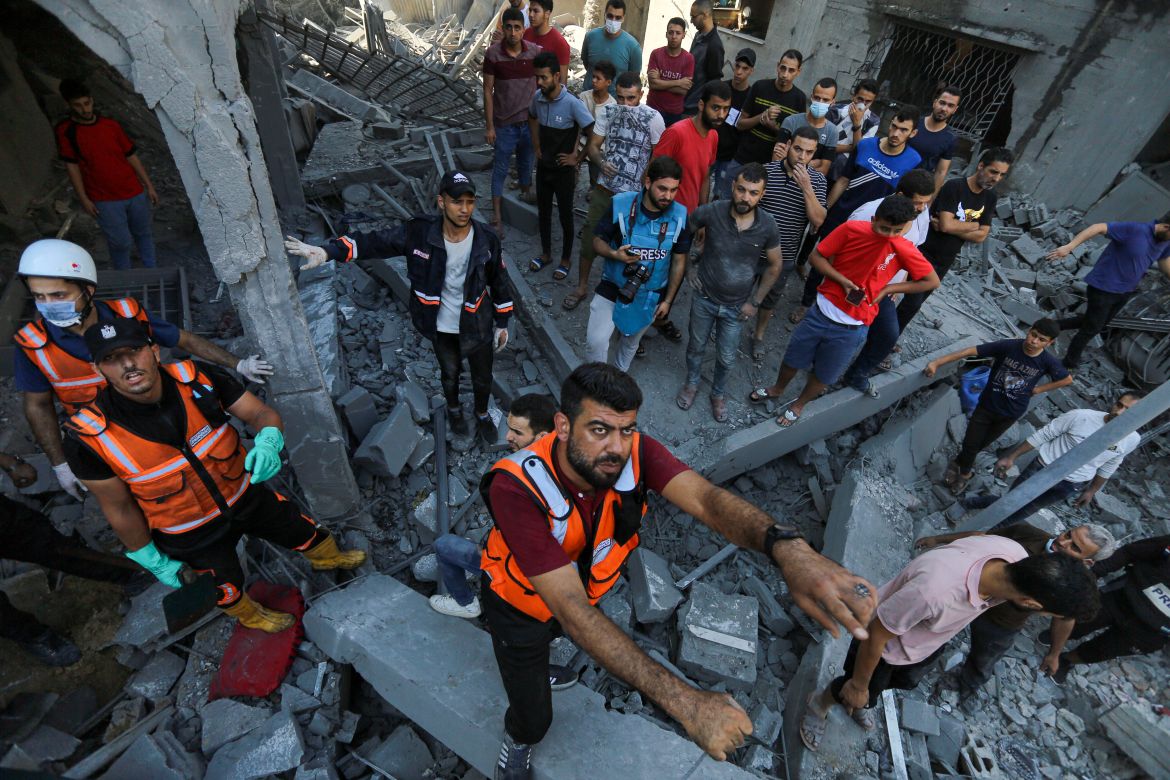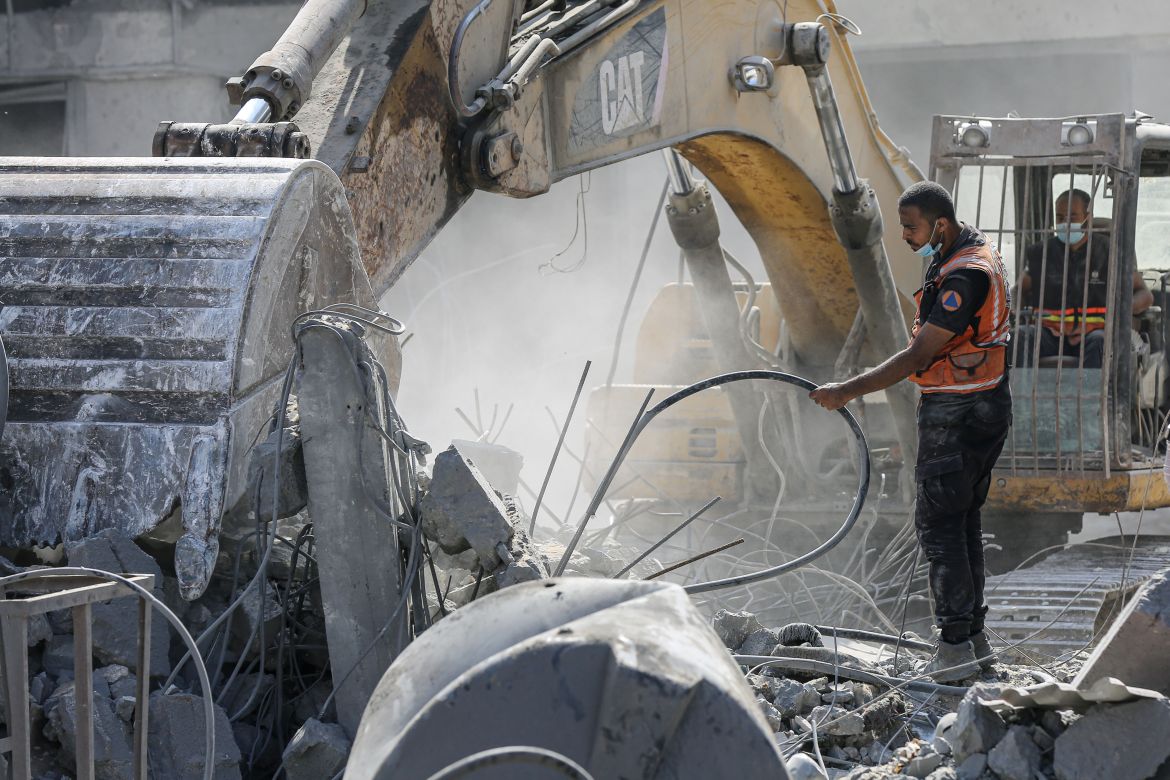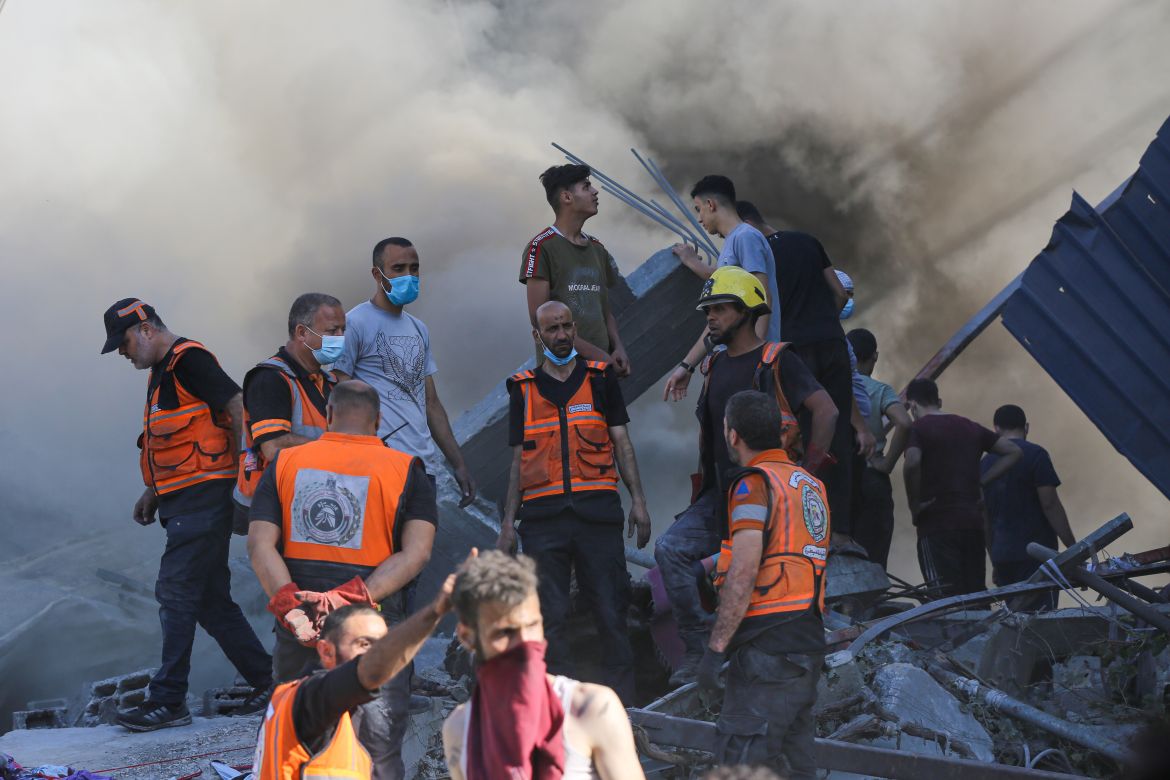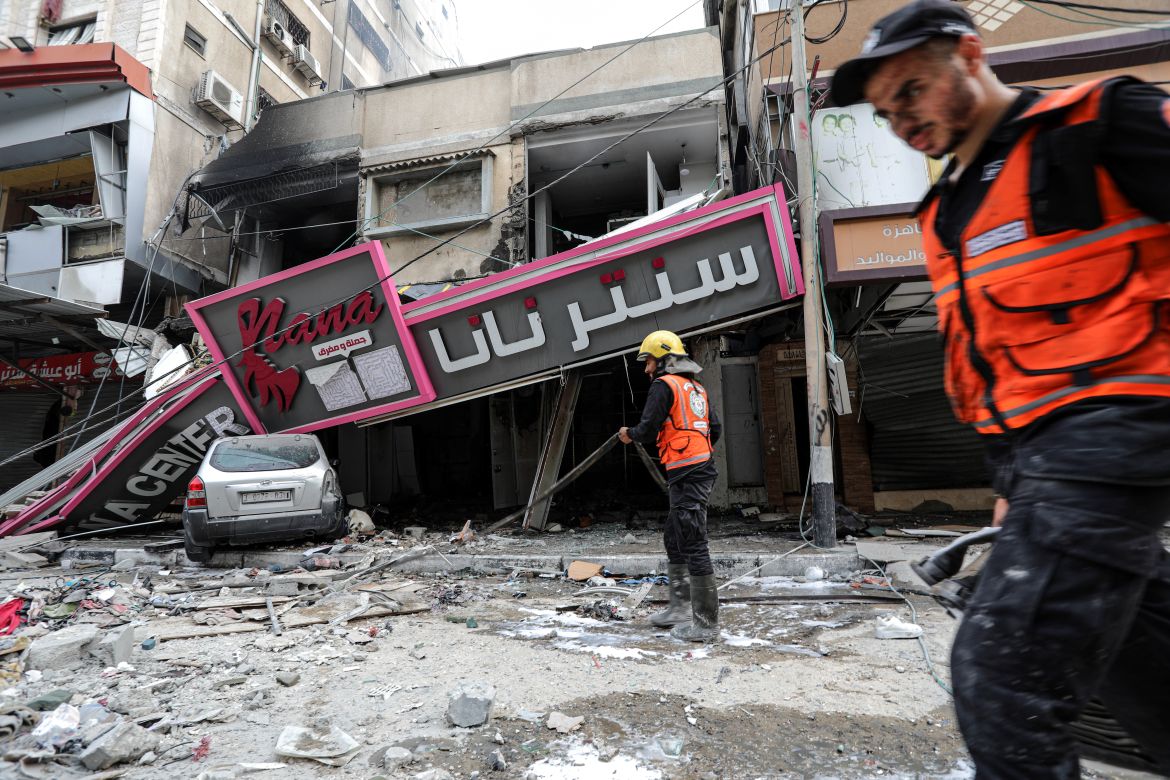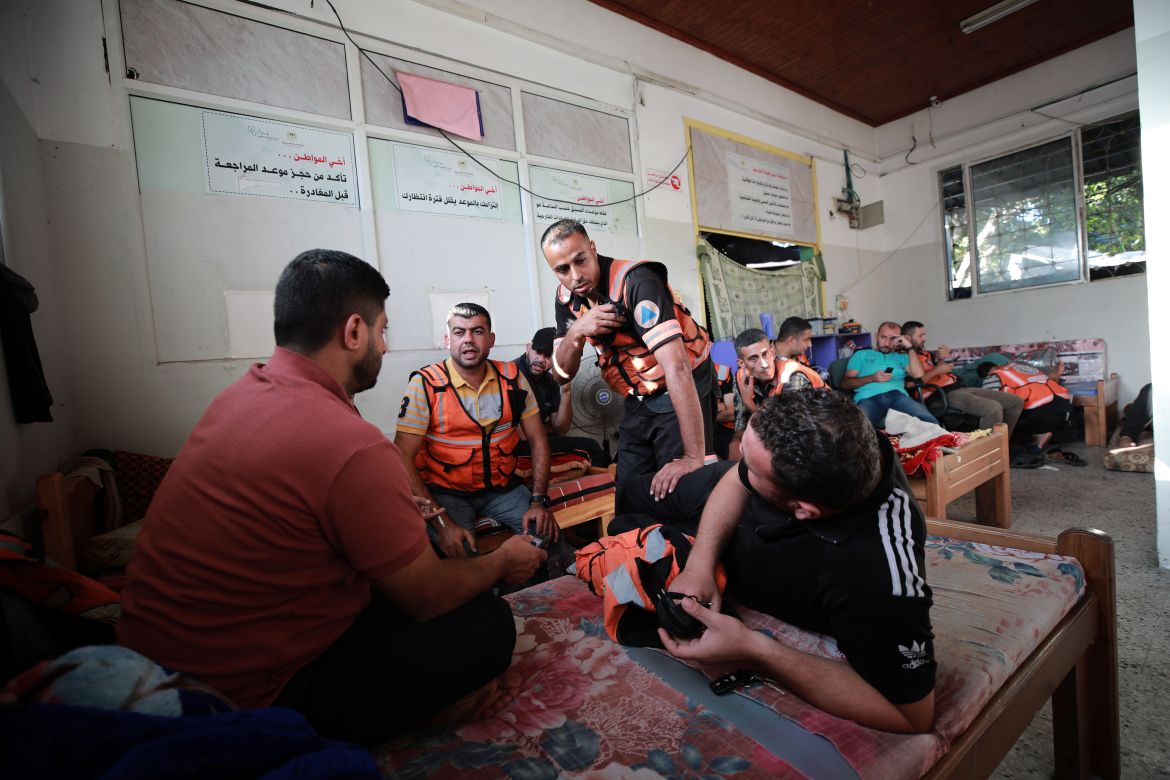In Pictures
This Israel war has no mercy, Gaza rescue workers say
Civil defence members work around the clock with limited resources and no guarantee of their safety, witnessing horrors.
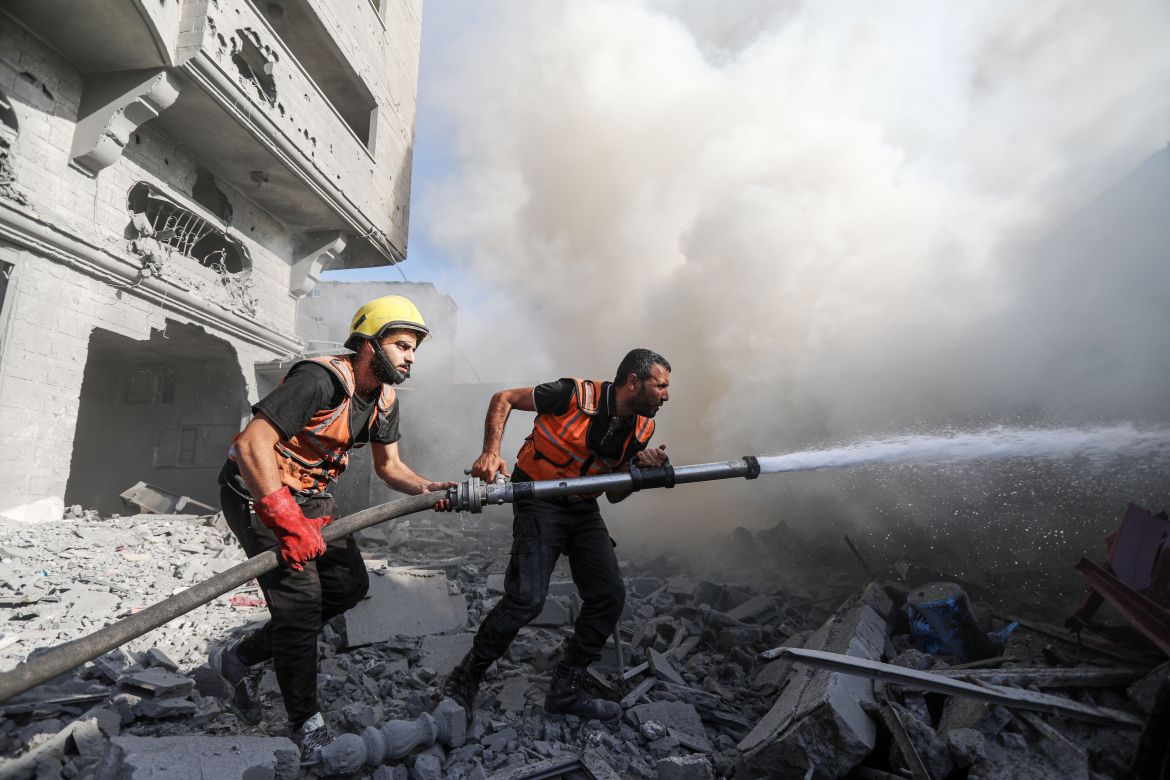
Gaza City – Ibrahim Abu Rish feels fresh, thanks to a barber at al-Shifa Hospital who gave him a haircut.
The civil defence rescuer, who has been doing this job for 15 years, has not been home in more than a month.
“My home is in Karameh, and the whole neighbourhood got destroyed,” he said. “I haven’t had a chance to see my wife and children yet, who are displaced. My wife calls me many times a day, but I can’t answer her every time.”
Abu Rish, 35, has witnessed things over the past month that are worse than anything he could have imagined. The Israeli bombardment of the blockaded Gaza Strip has killed more than 10,500 Palestinians since October 7, most are women and children. Israeli air raids have targeted homes, residential blocks, entire neighbourhoods, schools, mosques, churches and hospitals.
“This war has no mercy,” Abu Rish said. “We cannot guarantee our own safety.”
At least seven rescue workers have been killed.
Abu Rish’s colleague Mohammed al-Ghaleez and five other civilians were killed in an Israeli air attack on the al-Tuffah police station on Salah al-Din Street in Gaza City.
“The hardest thing I’ve seen is the torn bodies of children, the children under the rubble who we can’t reach,” Abu Rish said. “Bodies litter the streets. The smell of this city is one of rotting, decomposing bodies.”
He has also seen people desperate for water drinking from the hoses the civil defence uses to extinguish fires.
More than 2,660 people are missing under the rubble, including 1,350 children.
“It drives me crazy that we can’t save these people,” he said. “I’ve had to tell people that we cannot rescue them. I could see them, but there was no way to reach them. Imagine waiting for death like this.”
The civil defence is sorely lacking in heavy machinery and equipment needed to move the rubble, his colleague Musleh al-Aswad said. Their vehicles are rusty, and if they don’t break down from a mechanical problem, the damaged roads and shrapnel hinder their operations.
“We don’t have the resources,” the 40-year-old said. “No fire engines, vehicles, ambulances, machines. People use metal cutters and their hands to dig through the rubble.”
Tractors and excavators are rare and, even if available, need fuel to work, which is not available.
Telecommunications blackouts add stress and prevent rescue teams from coordinating with each other.
“I’ve been in the field since 2007 and in every war since then,” al-Aswad said. “But this one, … what is happening to us is unprecedented.”
He sees his family every few days, stealing half an hour with them and making sure they’re OK before changing his clothes to head out again.
“We are definitely afraid in our line of work, but our determination is stronger,” he said. “We took an oath to protect our people.”
Abu Rish said there hasn’t been a single road that Israeli warplanes and tanks have not targeted, and when they strike, it’s always more than once.
“We want a ceasefire and for the injured to be transferred outside for treatment and for all of this to end,” he said. “Enough.”
